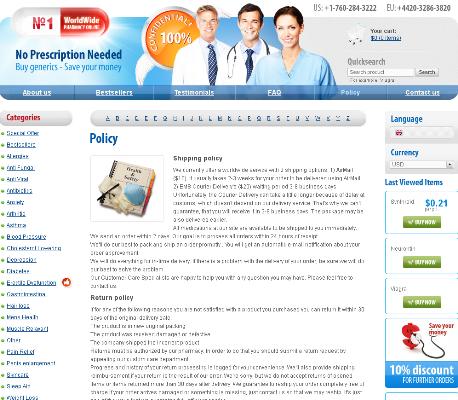Top 7 Myths about Paxil Debunked
Paxil Will Instantly Cure Your Depression
Imagine hoping for a magic pill to lift your mood overnight, only to realize that recovery rarely happens so quickly. Antidepressants like this one typically take several weeks to reach their full effect. This gradual process allows your brain chemistry to adjust, meaning patience and consistency are key for the best results.
There are numerous reasons why recovery times differ. Factors such as individual brain chemistry, additional therapies, and even lifestyle changes all play an important role.
| Expectation | Reality |
|---|---|
| Instant mood improvement | Gradual symptom relief over weeks |
You Can’t Quit Paxil Once You Start

Many people feel anxious about starting a medication like Paxil, fearing they’ll be unable to stop once treatment begins. The truth is, while stopping Paxil should always be done thoughtfully and under medical supervision, most individuals can discontinue the medication safely with a gradual reduction plan.
Doctors are experienced in helping patients transition off Paxil, tailoring a taper schedule that minimizes withdrawal symptoms and supports your well-being. For many, discontinuation is uneventful, though a small percentage may experience mild, temporary symptoms as their bodies adjust.
It’s important to remember that taking Paxil is not a lifelong commitment for everyone. With proper guidance, ending treatment is entirely possible.
Paxil Is Addictive Like Illegal Drugs
Many people worry that taking paxil might lead to the same kind of dependency that illicit drugs can cause. In reality, while paxil is a prescription antidepressant that affects brain chemistry, it is not habit-forming in the way that substances like heroin or cocaine are. Paxil does not create uncontrollable cravings or a 'high,' and its mechanism is fundamentally different from recreational drugs.
Some individuals may experience withdrawal symptoms if they stop paxil abruptly, but this is a sign of the body adjusting, not addiction. With proper medical guidance, tapering off paxil is safe and manageable, emphasizing its therapeutic use rather than addictive potential.
Only Severely Ill People Need Paxil

When Sarah first heard her doctor mention Paxil, she hesitated—she thought antidepressants were only for people in crisis. In reality, mental health challenges come in many forms, and no single experience fits all. Sometimes, persistent anxiety or mild depression can disrupt daily life, making it difficult to function at your best. Paxil isn’t reserved solely for the most severe cases; it’s a tool doctors use for many people struggling with moderate symptoms. Modern medicine recognizes that anyone, regardless of the intensity of their challenges, deserves help. In fact, early intervention with medications like Paxil can often prevent symptoms from becoming worse over time.
Paxil Has Horrible Side Effects for Everyone
For many individuals, starting a new medication like Paxil brings understandable concerns about side effects. It's true that some people experience mild symptoms—such as nausea or drowsiness—when beginning treatment, but most issues tend to resolve as the body adjusts. Not everyone will face the same reactions, and plenty of individuals experience few, if any, troubling effects.
Doctors carefully weigh the risks and benefits before prescribing, tailoring guidance for each patient. Open communication with a healthcare provider helps ensure that any unwanted symptoms are quickly addressed.
Ultimately, the majority of people tolerate Paxil well. Being proactive about discussing potential side effects makes the journey to wellness smoother.
| Possible Side Effects | How Common? |
|---|---|
| Nausea | Occasionally |
| Drowsiness | Occasionally |
| Weight Changes | Less Common |
Taking Paxil Means You’re Weak or Broken
Choosing to take medication for your mental health is a sign of self-awareness and strength, not a character flaw. Many people mistakenly believe that seeking pharmacological help means they've failed, but the reality is far from that. Like any other medical condition, depression or anxiety often requires medical treatment alongside therapy and lifestyle changes.
Shame and stigma can make people hesitate to get the support they deserve, but mental health is just as important as physical health. Embracing treatment empowers you to actively care for your well-being and live life to its fullest.

